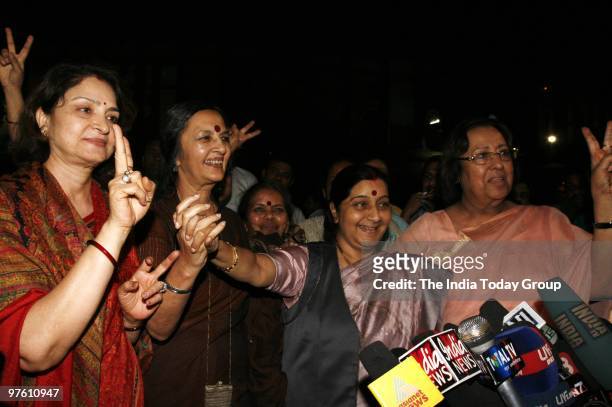Alakshendra Singh, Pune
The Constitution (One Hundred and Twenty Eighth Amendment) Bill, also known as the Women’s Reservation Bill and granting 33% of seats to women in the Lok Sabha and State Legislative Assemblies, was enacted by Parliament in a historic act. A day after receiving nearly universal support in the Lok Sabha, the Bill received all of the votes in the Rajya Sabha on September 21, a day earlier than expected. The Bill now needs the President’s approval to become a law.
The Nari Shakti Vandan Adhiniyam Bill aims to reserve one-third of all seats for women in the Lok Sabha, State Legislative Assemblies, and Delhi’s National Capital Territory.
“A historic achievement,” declared Rajya Sabha Chairman Jagdeep Dhankhar upon the Bill’s passing. The members banged on the desks in appreciation at the announcement of the Bill’s passing.
The debate, punctuated by couplets and poetry, featured a total of 72 speakers. A succession of female moderators took turns serving as the Chair during the discussion. The opposition focused on two main points: the delay in introducing the bill and the inclusion of OBC women in the 33% reservation without their own distinct reservation. These claims were refuted by the Treasury benches with actions taken by the Modi administration to support women.
The Opposition members criticised the BJP for portraying the Bill as an example of the Prime Minister’s kindness toward women in opposition to the governing party speakers who credited PM Modi alone for presenting the legislation. Additionally, they criticised the bill’s name, Nari Shakti Vandan Adhiniyam.
“You referred to the Bill as if it were a divine favour. It is not a supernatural favour; rather, it is a constitutional right,” according to Congressman Ranjeet Ranjan, who started the discussion for the opposition. She further criticised the government, pointing out how it remained silent while women wrestlers were sitting in protest at Jantar Mantar and women were being paraded in Manipur naked, but now displays an uncommon commitment to women.
